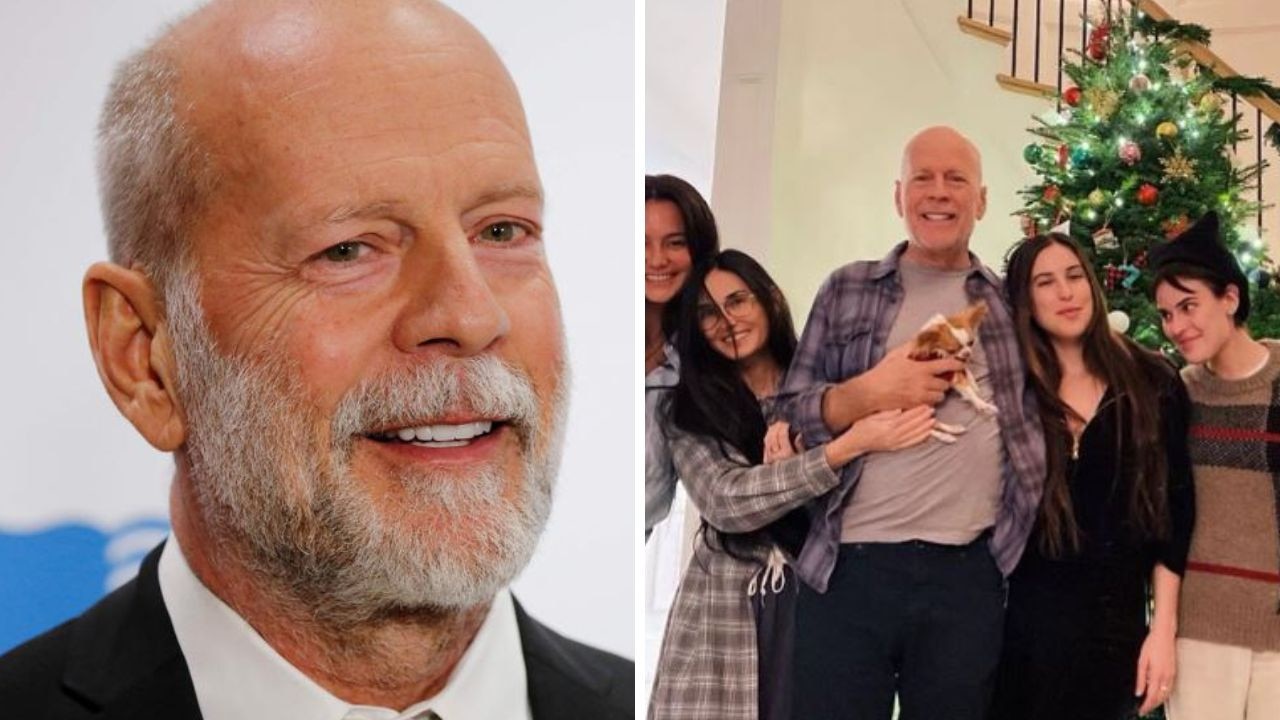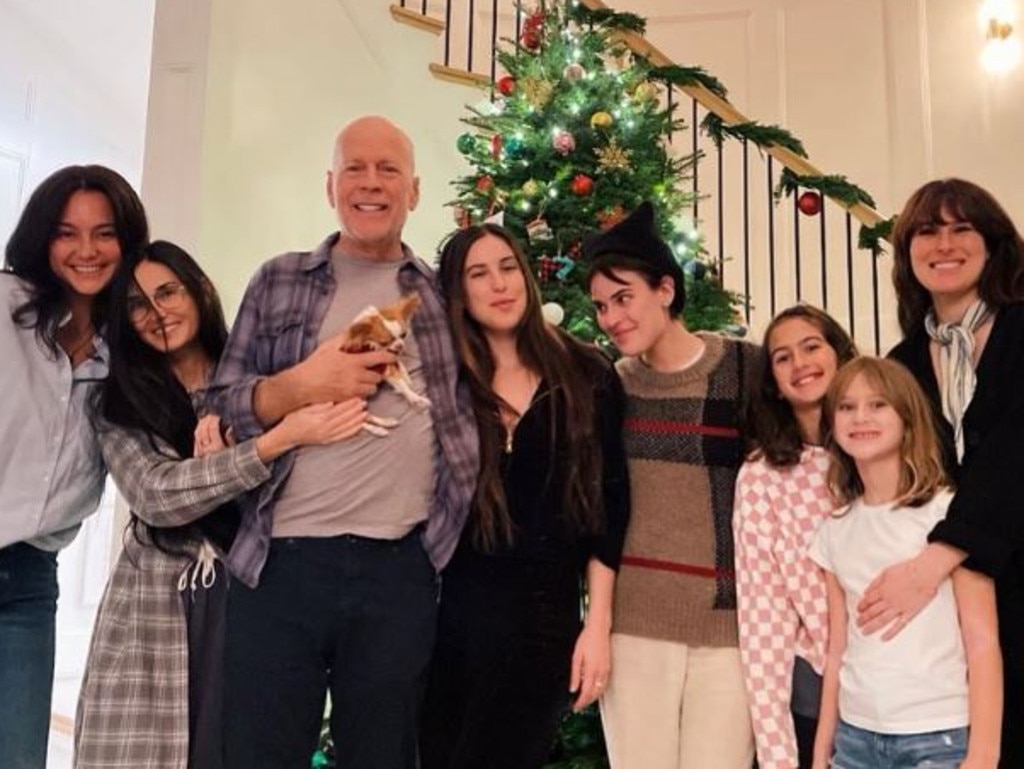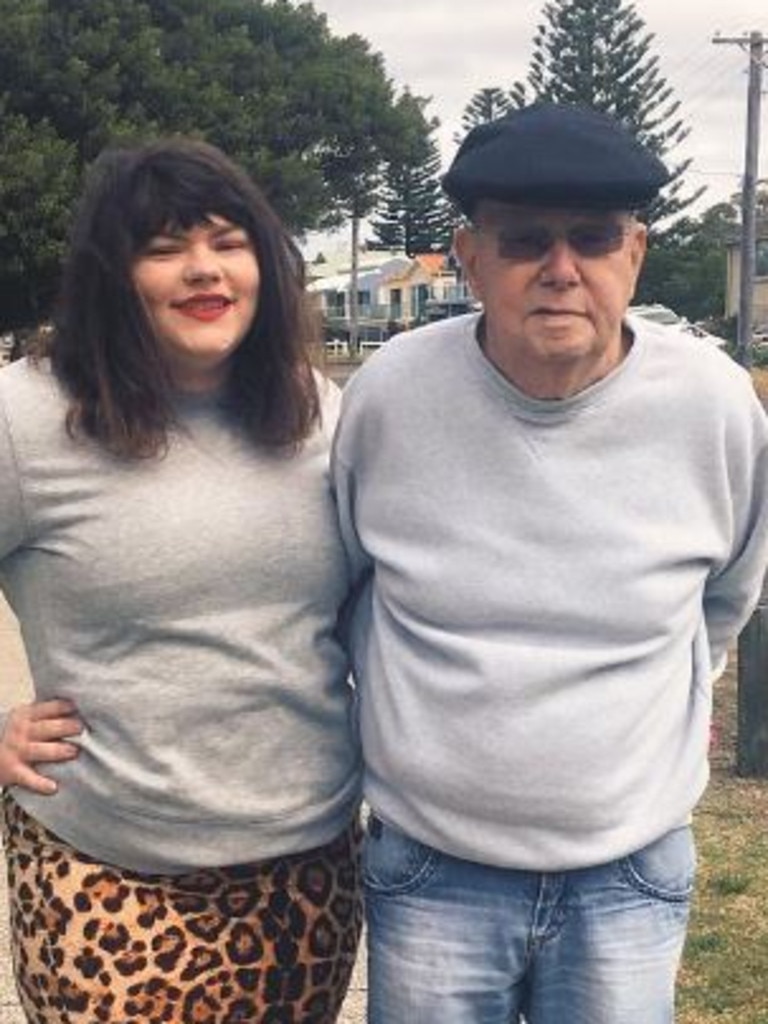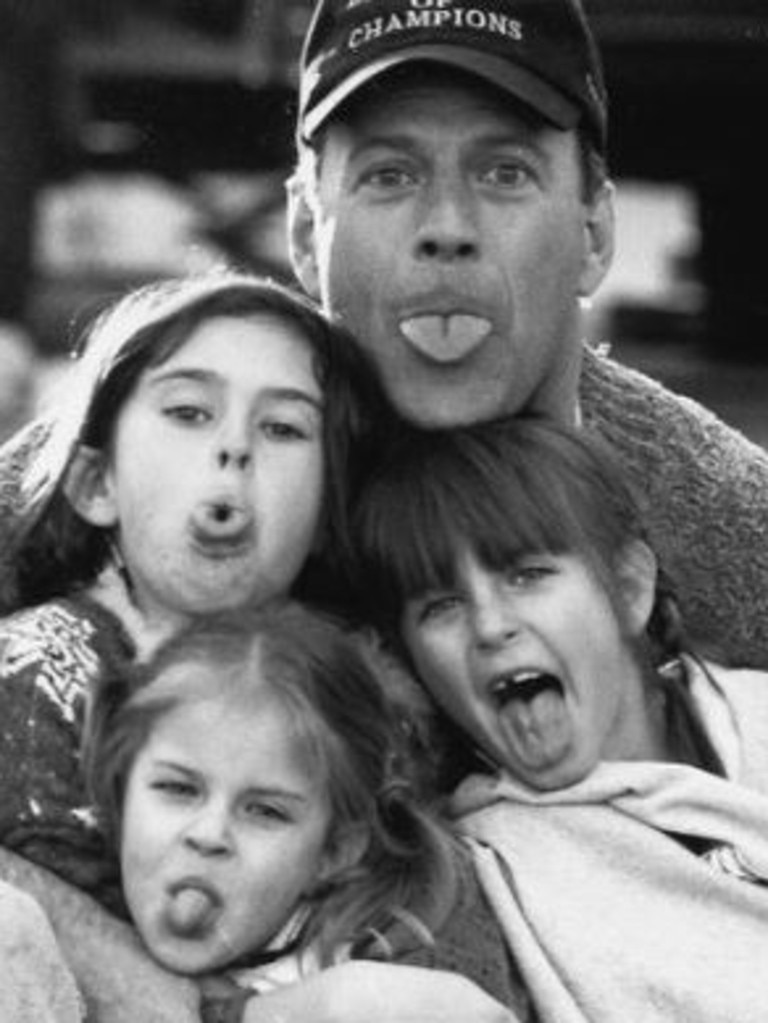Bruce Willis’ tragic diagnosis is heartbreaking and sadly relatable
The tragic news of Bruce Willis being diagnosed with an incurable disease highlights a cruel and painful truth.

There’s a special kind of pain in slowly losing the person you love, and now sadly, Bruce Willis’ family must live with that loss.
This morning the action star’s family announced that he was battling dementia.
“For people under 60, FTD is the most common form of dementia, and because getting the diagnosis can take years, FTD is likely much more prevalent than we know,” the family wrote in an emotional post on the Association for Frontotemporal Degeneration website.
“Today, there are no treatments for the disease, a reality that we hope can change in the years ahead. As Bruce’s condition advances, we hope that any media attention can be focused on shining a light on this disease that needs far more awareness and research.”


It was a heartbreaking statement written by a family who realise there is no cure for the person they love the most. While I don’t usually find myself relating to celebrities, I read that note, and I understood.
My dad was diagnosed with dementia when I was in my early 20s. At first, I had a strong instinct to ignore it.
The strange thing about dementia is that it isn’t an immediate disease. There’s no pain in someone’s chest, and there’s no sense of emergency. A diagnosis hangs in the air, making everyone feel like they can’t breathe.
In my dad’s case, the disease was kind in the sense that it was pretty slow.
There were little signs at first.
Suddenly Dad found it hard to follow a dinner conversation where multiple people were speaking. As a family, we adjusted and pivoted to talking directly at him and working hard not to talk over each other.
If I thought about my dad’s diagnosis, it was like a burning in my chest, but mostly, we didn’t talk about it. I just tried to ignore it and it was easy to ignore.
A slow disease means there’s no fanfare, people care but no one can sustain consistent interest for that long.
I just really wanted him to keep being the dad I grew up with.
Then one day, we ordered Chinese food, and I put my dad’s favourite order, which is spring rolls, down in front of him, and he said, “What are those?” and I said, “Dad, they are your favourite.”
I fobbed it off like it was normal to forget your favourite food, and then I cried in the bathroom later with the shower running, so no one would hear.

Willis isn’t just a movie star, he is also a dad to five daughters and while they might be sitting in nicer houses doing it, they’d all be dealing with the universal devastation that their dad is slowly going to be stripped of all the things that make him, well him.
Clinical psychologist and author Dr Rebecca Ray explained that if you love someone that has been diagnosed with dementia, you need to acknowledge your own grief.
“Allow yourself to grieve,” she said.
“Dementia progression is usually long-term, and brings with it a host of complexities for your relationship with your parent as their symptoms intensify. You may feel like they are slipping away from you in an almost imperceptible, but very real way.”
Dr Ray also pointed out that the grief process was not always simple with an ongoing illness. “The grief process can feel confusing and overwhelming. It’s what psychologists call ‘anticipatory grief’: the grief you experience as the loss is occurring but before the person passes away,” she said.
“You’re allowed to honour this sadness and let it be present within you.”


More Coverage
Everyone grows up thinking their dad is an action hero – for Willis’ kids it just happens to be accurate – but my memories of my dad are firmly entrenched in him fixing stuff, opening jars, carrying heavy things, getting rid of spiders with his sheer presence making me feel safe.
I firmly believed that my dad could save our family from everything including being deprived of salsa because the lid was too tight or from burglars if they broke into our home – I still wish I could have saved him from dementia.
Willis’ diagnose is a cruel and unfair and the only hope I have is that it brings awareness to a disease that is hurting so many families. Everyone deserves for their Dad to stay their Dad.






